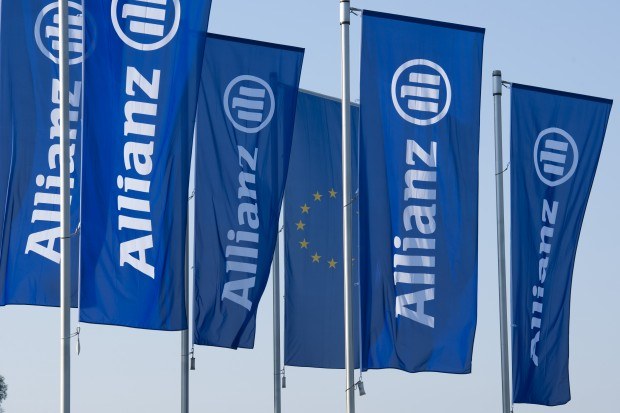German insurer Allianz has called on its California-based asset manager, Pimco, to prove itself after investors withdrew a further 22 billion euros ($30 billion) in the first quarter, denting group earnings.
Performance at Pimco, which has been an Allianz cash cow for years and runs the world’s biggest bond fund, has become a growing problem since the departure of its co-chief investment officer, Mohamed El-Erian, this year after a clash with Pimco founder Bill Gross.
Europe’s biggest insurer said that institutional clients had joined retail investors in pulling funds from Pimco, whereas last year it said withdrawals came mainly from the retail side.
Allianz Chief Financial Officer Dieter Wemmer said the group is convinced the outflows atPimco would narrow in time.
“Pimco certainly has to prove that it stops at some point,” Wemmer said in a conference call with analysts after Allianz released first-quarter results on Wednesday.
“After bringing it (the outflow) to zero, the next step is bringing it to a positive number,” he added.
Pimco’s outflows in the quarter were less than the 29 billion euros and 36 billion euros that took flight in the third and fourth quarters of 2013, but it still faces headwinds as investors position for higher interest rates in its main market, the United States.
“The trend is pointing in the right direction,” Wemmer said in a Reuters TV interview, referring to the drop in outflows. “But the market environment for actively managed fixed-income funds is at the moment a bit difficult; there are also outflows at our big competitors on the same products.”
But the latest fund flow figures from Morningstar Inc show a different picture.
Michael Rawson, an analyst at Morningstar, said in an April report titled “Investors Return to the Bond Market, Just Not to PIMCO” that investors added $39 billion to long-term U.S.-domiciled mutual funds in March, but Pimco saw net outflows for the same period.
Rawson said $7.4 billion was moved out of Pimco’s funds in March, while $15.5 billion was withdrawn by investors in the first quarter. Pimco’s flagship Total Return Fund (PTTRX), for instance, experienced $3.1 billion in outflows in March. Other intermediate-term bond funds had $7.4 billion of inflows during the month.
WITHDRAWALS SPLIT
Wemmer said investors had been changing their strategic asset allocation and withdrawing money from a mix of products. “It’s half and half between total return-type funds and the newer fund families,” he said.
Allianz had reported preliminary quarterly earnings last week, but its declaration that it remains on track to achieve its full-year target for group operating profit of 10 billion euros failed to mollify shareholders angry at Pimco’s performance.
After El-Erian’s departure, Pimco set up a structure of six deputy chief investment officers to back up Gross, 70, who is now the sole CIO.
“We’ve done all the necessary changes together with Pimco management,” Wemmer told Reuters TV. “What the renewed team has to demonstrate is continued good performance of the funds.”
Operating profit in asset management fell to 646 million euros, from 900 million euros in last year’s strong corresponding quarter, with performance fees at Pimco slumping by 96 percent.
“Asset management operating profit was a tick worse than we had expected on the basis of preliminary data,” LBBW analyst Werner Schirmer said in a note to clients.
Allianz shares rose 0.8 percent to 122.85 euros by 1504 GMT, outpacing a flat STOXX Europe600 insurance index.
Allianz is one of the world’s biggest fund managers, with 1.3 trillion euros in third-party assets under management at the end of the first quarter. Pimco represents the lion’s share of those assets, at 1.1 trillion euros. ($1 = 0.7296 Euros)





















 Focus on Ski Guides After Deadly California Avalanche Could Lead to Criminal Charges, Civil Suits
Focus on Ski Guides After Deadly California Avalanche Could Lead to Criminal Charges, Civil Suits  High Court Ruling on Trump Tariffs to ‘Ease Uncertainty,’ Says AM Best
High Court Ruling on Trump Tariffs to ‘Ease Uncertainty,’ Says AM Best  State Farm Inked $1.5B Underwriting Profit for 2025; HO Loss Persists
State Farm Inked $1.5B Underwriting Profit for 2025; HO Loss Persists  Large Scale Cargo Ring Busted in LA, $5M Recovered
Large Scale Cargo Ring Busted in LA, $5M Recovered 





